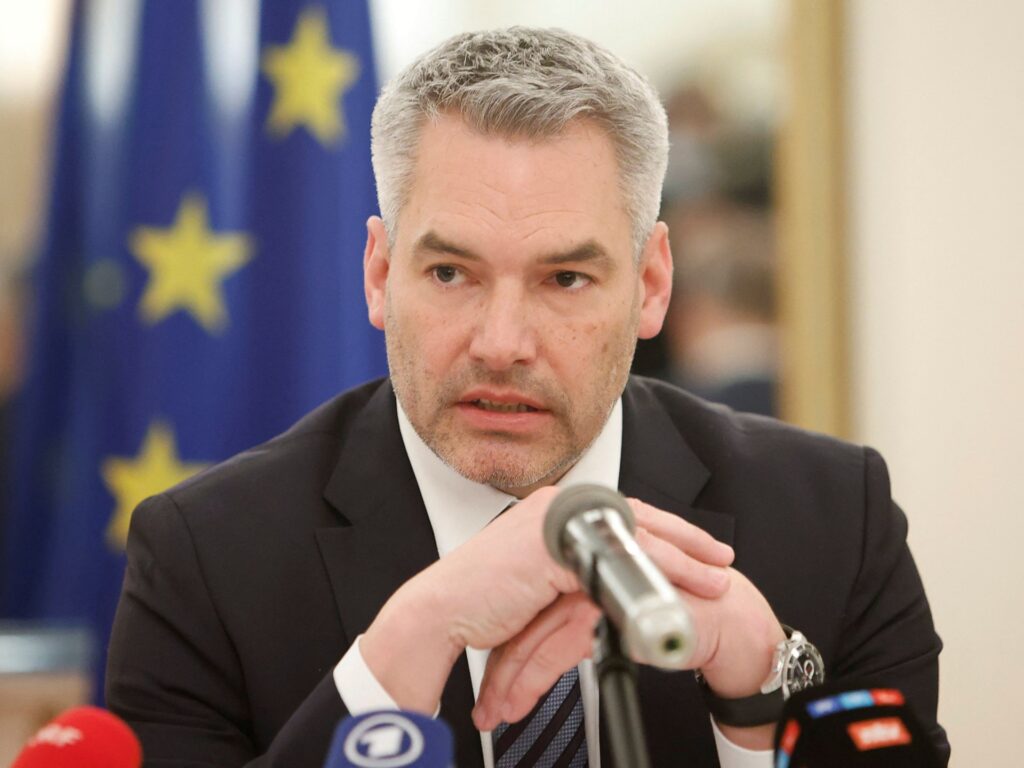Nehammer said his People’s Party does not support policies or new taxes that would harm the economy.
Austrian Prime Minister Karl Nehammer has announced he will resign after talks between the country’s largest centrist parties to form a government without the far-right Freedom Party (FPO) collapsed.
Saturday’s announcement came a day after liberal party Neos withdrew from negotiations with Nehamer’s conservative People’s Party (OVP) and Social Democratic Party (SPO).
“Following the breakdown of coalition talks, I will do the following: I will resign as both prime minister and leader of the People’s Party within the next few days,” he said.
In a video posted to his social media accounts, the outgoing prime minister said “long and honest” negotiations with the center-left had failed despite a shared interest in preventing the rise of the far-right. .
Nehammer emphasized that his party will not support policies or new taxes that it believes will have a negative impact on the economy.
He said it would enable an “orderly transition” and criticized “radicals who live only by describing problems without offering a single solution to any problem.”
In the first parliamentary elections in the party’s history held in late September, the far-right Freedom Party (FPO) won with nearly 30% of the vote.
However, other parties rejected a coalition government with the Eurosceptic and pro-Russian FPO and its leader Herbert Kickle, so President Alexander van der Bellen in late October asked Nehammer to form a coalition government. commanded.
Nehammer’s announcement came after he also failed to reach an agreement with the Neos party.
Neos leader Beate Meinl Reisinger said progress was impossible and that “fundamental reforms” had not been agreed.
Following the prime minister’s resignation, the OVP is expected to convene to discuss potential successors.
The political situation in Austria remains uncertain and there is no immediate possibility of forming a stable government due to continued disagreements between political parties.
The president could now appoint a different leader and caretaker government as political parties look for a way out of the deadlock.
Austria’s next government faces the challenge of saving between 18 billion and 24 billion euros ($18.5 billion to $24.7 billion), according to the European Commission.
The country’s economy has been in recession for the past two years, unemployment is rising and the budget stands at 3.7% of gross domestic product, above the European Union’s 3% cap.



